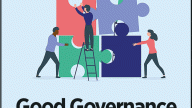EEDI (Equality, Equity, Diversity and Inclusivity) and Wellbeing Hub
Meet DSC's Wellbeing Team
Find out about our Wellbeing Team and what they do for staff at DSC.
Due to rising demand and pressure, a high proportion of charity workers suffer from burnout because of work. However, preventative actions can be put into place to avoid this and improve retention. Prioritising wellbeing is a great way to start, and one way of doing this is to set up a wellbeing working group in your organisation, dedicated to the mental and physical wellbeing of staff.
DSC set up an in-house team dedicated to our staff’s wellbeing back in 2020 and for the past four years the team has worked hard to prioritise wellbeing in everything we do. To help you on your way, here’s some information about how the team works…
Introducing the team
- Harry Wrafter, Executive Office Manager
- Kalli Jayasuriya, Researcher
- George Knight, Training Consultant
- Jessica Threlfall, Senior Researcher
- Annette Lewis, Director of Training and Services
- Rhiannon Doherty, Senior Researcher
- Catrina Miller, Head of Training and Events
Dedicating ourselves to wellbeing and EEDI
The Wellbeing and EEDI (equality, equity, diversity and inclusion) team is a board working group that includes staff from all parts of DSC. We meet four times a year to look at both wellbeing and EEDI and then there is also a small group of staff that meet on a fortnightly basis whose sole focus is discussing wellbeing concerns, resources and updates.
Lead, encourage and improve DSC wellbeing
The mission is to lead on, encourage and improve wellbeing within DSC, and as a working group ensure wellbeing is kept on the organisation’s agenda.
How we prioritise wellbeing
The group does a variety of things to help improve wellbeing, such as:
- Delivering a bimonthly internal wellbeing bulletin, with various wellbeing recommendations and signposts to useful resources.
- Leading on the DSC wellbeing survey once a year, sharing the results and implementing the appropriate recommendations from this survey.
- Encouraging the use of DSC’s wellbeing resources channel on Teams.
- Issuing the wellbeing photo challenge, which leads in each wellbeing bulletin and changes with each bulletin.
- We have Mental Health First Aiders and a Mental Health First Aiders Guidance policy which, outlines the practicalities of getting in touch with our mental health first aid trained staff and the expectations of being a mental health first aider. This policy is reviewed on a regular basis.
- To support anyone to get in contact with a mental health first aider, the approach is: If you are unsure about how to start the conversation with a mental health first aider, please message them in Teams with the following message: “Do you fancy a hot chocolate?”. This will signal to the mental health first aider that you would like to have a conversation about mental health.
- As a group, we keep abreast of wellbeing initiatives and share appropriate ideas with staff through the wellbeing resources channel on Teams.
How can organisations improve their internal wellbeing?
- Create a working group that includes members from all levels of the organisation.
- Be creative, fun and practical when suggesting wellbeing resources to staff.
- Lead by example, if you do not use the wellbeing resources within the organisation, why will others?
- Implement their own all staff wellbeing survey to help pinpoint areas in the organisation that need support.
If you’d like to know more information about the DSC wellbeing team, contact Harry Wrafter on:
Email:hwrafter@dsc.org.uk
Phone: 02045266743
Mobile: 07593596237


